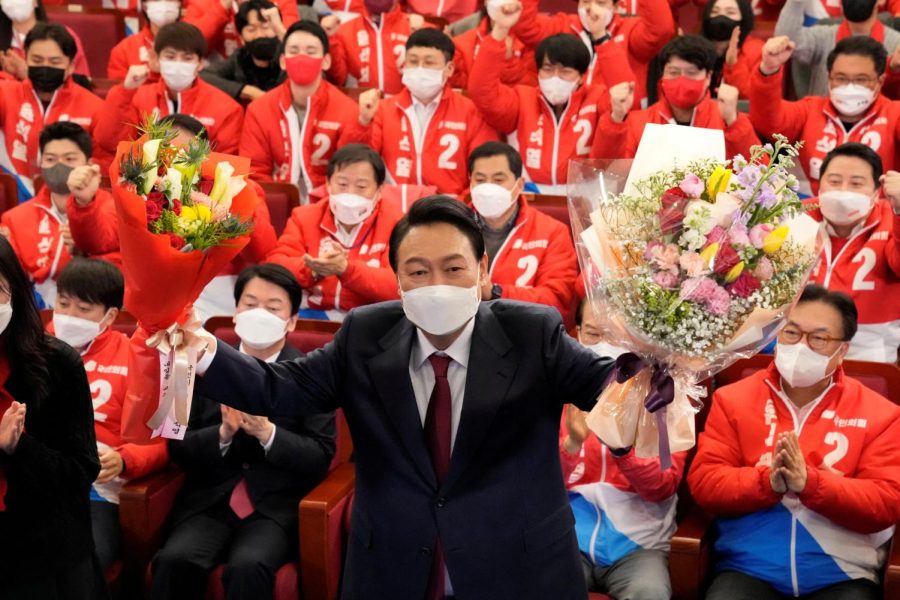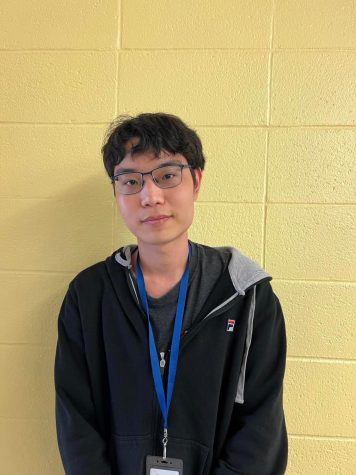Yoon Seok-youl Elected As the 20th President of South Korea
March 11, 2022
On March 9, Yoon Seok-youl, the presidential candidate of the conservative People Power Party (PPP) and the former Prosecutor General, was elected as the 20th president of South Korea. The White House congratulated the president-elect, claiming that the US-South Korean alliance is “iron-clad” and that it looks forward to “expand[ing] our close cooperation.”
Yoon, previously known for sentencing the impeached conservative 18th president Park Geun-hye to 45 years in jail, continued his vigorous investigation against top government officials, even after being promoted as the prosecutor general of 19th president Moon Jae-in’s liberal administration. Such investigations led to conflict between the prosecutor’s office and Moon’s administration. The conflict grew more intense as Yoon unveiled the corruption of the administration’s Justice Minister, one of the leading figures of the Korean Democratic Party. The accused Justice Minister was eventually forced to resign by the public. The conservatives, who previously denounced Yoon for his sentence of 45 years against former-president Park, turned in favor of him and elected him as their presidential candidate. Yoon gained substantial support from young men in their 20s-30s along with the support of traditionally-conservative older generations.
It is likely that he will tighten foreigners’ access to public healthcare programs, which may affect Korean-Americans residing in the United States. In Korea, residents only need to cover approximately 20% of the medical treatments thanks to the mandatory National Health Insurance Service (NHIS). Five percent of a hired person’s income goes to the NHIS, and on average, it costs $100 per month. This not only applies to Korean citizens but also applies to any foreigners who reside for more than 6 months in Korea. However, Korea started to witness a number of abuses of this system by foreign nationals that cost the government $26.6 million over 5 years. One instance is foreign nationals’ “medical shopping,” which is “seeking medical services at much lower prices compared to their home countries while on short-term stays.” This resulted in renewed criticism against such practices and many citizens demanded that foreigners pay the due amount for the public healthcare service. In response, Yoon pledged that he will “apply more stringent standards to screen foreigners living in South Korea when deciding who gets National Health Insurance Service (NHIS) coverage.” Such measures may result in Korean Americans experiencing healthcare/medical service-related difficulties when visiting Korea for traditional holidays or to visit their families.
The president-elect’s foreign policies also involve establishing stronger ties with Korea’s traditional democratic-capitalist partners: the United States and Japan. Throughout his term, President Moon attempted to establish closer relationships with North Korea and China by departing from the traditional pro-US diplomatic route. For instance, his administration declined to support the UN Resolution on North Korean human rights violations in 2019 despite apparent human rights abuse and nuclear weapons development. In addition, he adopted the “three-nos” policy to placate China and reduce its economic pressures, which includes “no additional THAAD (Terminal High Altitude Area Defense) deployments, no participation in the U.S.-led strategic missile defense system and no trilateral military alliance with the United States and Japan.” Yoon strongly denounced such measures, claiming they were “overly accommodating gestures meant to placate China.” He further stated that Korea must “always maintain the principled position that it will not compromise on its core security interests.” His policies of prioritizing national security from North Korea’s nuclear threat and China’s economic pressures gained widespread support among South Koreans, who became wary of China “flexing its might.”
Regardless of his political stance, it would be important for president-elect Yoon to contribute to international peace and development.


















































































































































